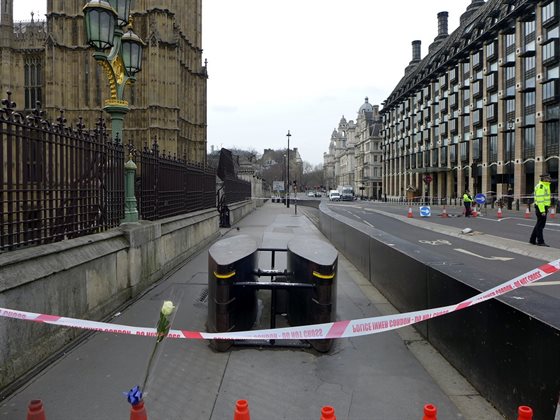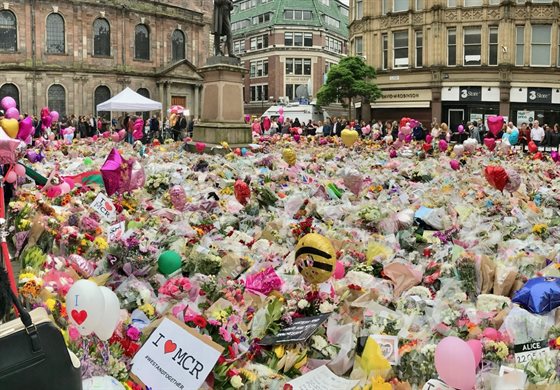A stark message has been sent to politicians and media – be careful what you say when responding to terrorism acts, your comments could cause a spike in race hate incidents.
That is one of the key findings in a report published by Tell MAMA (Measuring Anti-Muslim Attacks), which helps victims of anti-Muslim hate, with its recommendations based on research produced by De Montfort University Leicester (DMU).

Westminster Bridge the day after the incident (Photo credit: ChiralJon)
“A lot of hate is based on ignorance. What is needed are counter-messages to the far right, that dispel the myths,” said Kim Sadique, Acting Head of DMU’s Community and Criminal Justice Division, and one of the report authors.
The DMU researchers studied hate incident data supplied by police forces across England and reports investigated by Tell MAMA, focusing specifically on the two weeks following the March 2017 Westminster Bridge terror attack and comparing it with other major incidents.
Hate incidents range from strangers giving verbal abuse to people they perceive to be Muslim, or children at school being bullied and called terrorists, to Muslim women having their niqab or burka ripped off their heads or faces, or people being refused entry onto buses.

Floral tributes to the victims of the attack in St Ann's Square in Manchester city centre (photo credit: Tomasz "odder" Kozlowski)
They found a far higher spike in hate incidents followed the Manchester Arena attack in May that year than after the Westminster Bridge one, where police implemented a 14-day plan and positive messages were put out involving the Muslim community.
Recommendations issued include that, following a potential trigger event:
• The Government and political parties should provide clear leadership and a distinctive counter-narrative to anti-Muslim sentiments
• All police forces should implement the National 14-day Plan immediately
• Media reporting needs to be more balanced and media outlets should be held to account for inflammatory or inaccurate reporting
• Social media companies should enforce a ‘zero tolerance’ policy towards posts that incite hate.
“A lot of the data on this beforehand was anecdotal,” added Ms Sadique. “What our research shows is a spike in hate online in the first 24-48 hours after a ‘trigger’ event, and then that seems to move offline between 48-72 hours after.
“The wrong messages given out by the Government and political parties, particularly after trigger events, can almost embolden people to carry out hate incidents. We’re recommending that they need to be more grounded.
“It’s very much about them making quick and early responses – to think about what we are going to say, to have a planned response that can be adapted to specific circumstances.
“For example, at Westminster, the police had a 14-day plan which seemed to work. We are recommending other forces consider doing this as well.
“Another problem is social media – people can share videos and add their hate comments, while the way the media reports incidents is often inflammatory and inaccurate, and their use of imagery can be very harmful.”
The report, launched at the Trinity Chapel on the DMU campus on Friday, is based on the dissertation produced by student Anna Perowne, which focused on religiously-motivated hate incidents. Anna, who graduated last
summer, worked as a Research Assistant on the project during her final year of studies.
She interviewed journalists, police, and hate crime and inter-faith religious experts. The report includes further data analysis by Senior Lecturer in Criminology, Dr James Tangen.
The report – The Importance of Narrative in Responding to Hate Incidents Following ‘Trigger’ Events – is the first to be published by the new Global Peace and Transitional Justice Research Group at DMU, chaired by Ms Sadique, which is focusing on the United Nation’s Sustainable Development Goal 16, to build resilience within communities to further the goal of peace, justice and to develop stronger institutions.
Posted on Monday 17 December 2018